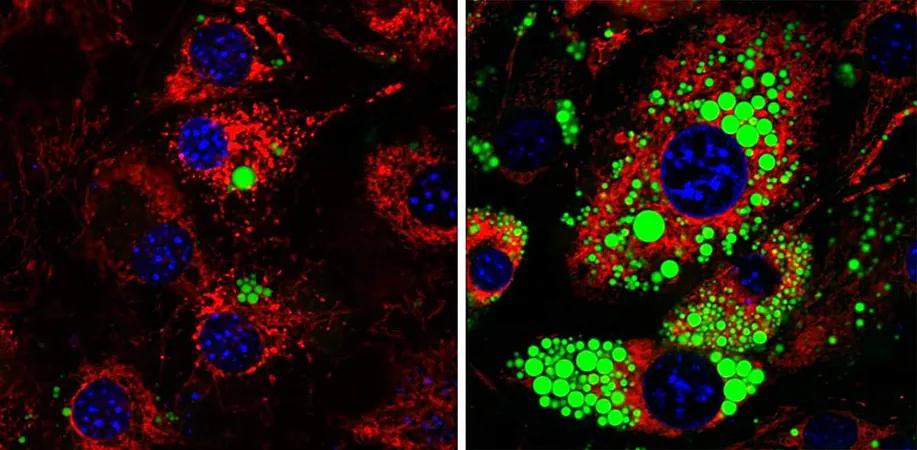
Unlocking Weight Loss: The Game-Changing Protein Mitch Could Be Your New Best Friend
2025-05-05
Author: Li
Revolutionizing Weight Loss with Science
For the past decade, innovative weight-loss drugs have flooded the market, offering a beacon of hope for those seeking a healthier, slimmer physique. But there's a catch: many of these drugs can lead to a significant drop in muscle mass. Enter Professor Atan Gross from the Weizmann Institute of Science, whose serendipitous discovery may hold the key to an effective solution.
Meet Mitch: The Protein That Could Change Everything
Prof. Gross and his team stumbled upon a fascinating find: silencing the MTCH2 protein, affectionately nicknamed "Mitch," in mice not only ramped up their athletic capacity but also made them virtually "immune" to obesity with a boosted metabolism. In a groundbreaking new study published in EMBO Journal, researchers have demonstrated similar effects in human cells, showcasing Mitch's pivotal role in burning fats and carbohydrates while preventing the formation of new fat cells.
The Mystery Unveiled: Muscle, Metabolism, and Mitochondria
Mice in the original experiments showed not just protection from obesity but also a surge in muscle fibers, which are known to consume large amounts of oxygen and enhance stamina. However, this raised an intriguing question: How can blocking a single protein lead to such dramatic improvements in both fat loss and muscle endurance?
Delving deeper, the focus turned to mitochondria—the cell's energy powerhouses that dictate our metabolism. These vital organelles can either fuse into an efficient network or operate independently, and their functionality is greatly influenced by Mitch.
Cracking the Code: What Happens When Mitch is Blocked?
In the recent study led by doctoral student Sabita Chourasia, researchers genetically engineered human cells to delete the Mitch protein. The outcome? A collapse of the mitochondrial network, relegating the cells to a long-term energy crisis. However, this energy shortage can actually be advantageous, staggering the effects of overeating and prompting the body to tap into its fat reserves.





 Brasil (PT)
Brasil (PT)
 Canada (EN)
Canada (EN)
 Chile (ES)
Chile (ES)
 Česko (CS)
Česko (CS)
 대한민국 (KO)
대한민국 (KO)
 España (ES)
España (ES)
 France (FR)
France (FR)
 Hong Kong (EN)
Hong Kong (EN)
 Italia (IT)
Italia (IT)
 日本 (JA)
日本 (JA)
 Magyarország (HU)
Magyarország (HU)
 Norge (NO)
Norge (NO)
 Polska (PL)
Polska (PL)
 Schweiz (DE)
Schweiz (DE)
 Singapore (EN)
Singapore (EN)
 Sverige (SV)
Sverige (SV)
 Suomi (FI)
Suomi (FI)
 Türkiye (TR)
Türkiye (TR)
 الإمارات العربية المتحدة (AR)
الإمارات العربية المتحدة (AR)